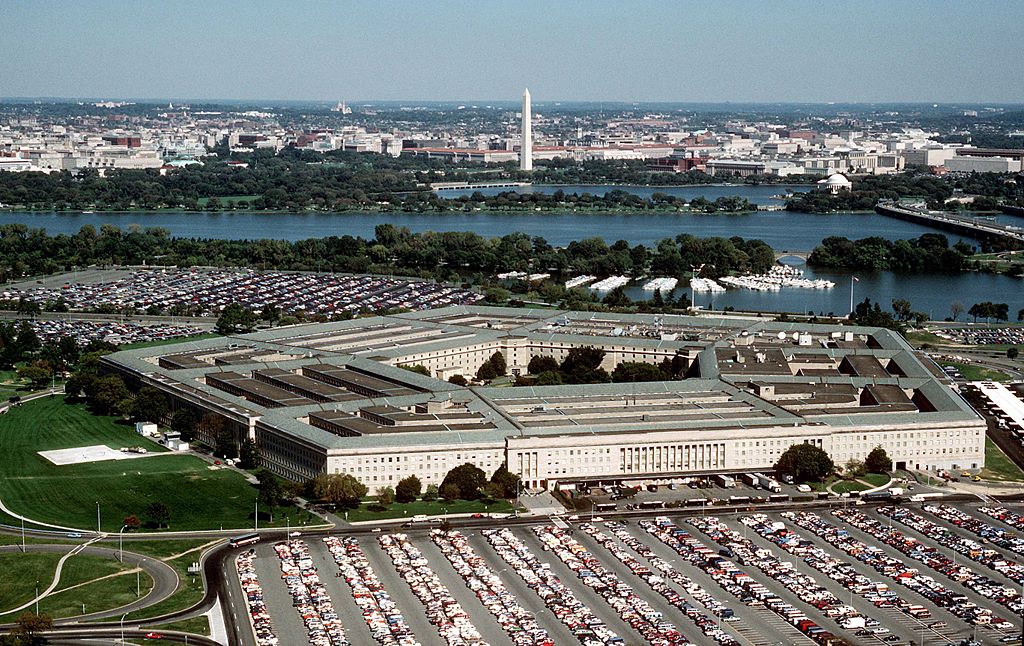Can the Pentagon Restrict Congressional Foreign Travel?
A recent story from Bryant Harris at Al-Monitor reveals growing tension between the Trump administration and House Democrats over congressional travel to parts of the Middle East and South Asia.

Published by The Lawfare Institute
in Cooperation With

A recent story from Bryant Harris at Al-Monitor reveals growing tension between the Trump administration and House Democrats over congressional travel to parts of the Middle East and South Asia. Harris reports that the Defense Department has restricted visits to Afghanistan, Iraq, Kuwait and Syria on the view that the task of hosting members of Congress in those locations would unduly interfere with the ability of military commanders to fulfill essential mission requirements. House Democrats aren’t persuaded and see the move as part of a broader erosion of transparency under the Trump administration. Channeling that concern, Democratic Rep. Stephen Lynch recently proposed to include in the 2019 National Defense Authorization Act (NDAA) a provision requiring the defense secretary to “authorize and facilitate meaningful access and assistance” to members traveling to the four restricted countries.
The reporting raises a number of questions about the nature of the Pentagon’s policy. It’s unclear, for example, how long it will last: The restrictions on travel to Iraq and Kuwait will reportedly operate from now until mid-June, and then again from late August through September, but the story is vague on the duration of the restrictions pertaining to Afghanistan and Syria. It’s also unclear how much flexibility inheres in the restrictions: The Defense Department will apparently make exceptions for some lawmakers, but the grounds are unstated. And while the restrictions may reflect a new approach to congressional foreign travel on the part of the Trump administration, that’s not obviously the case: Harris quotes Lynch as saying that members had “far greater access” under Presidents Barack Obama and George W. Bush and that “since the Trump administration came in, we have seen a gradual increase in limitations on [congressional delegations], especially Iraq and Afghanistan and understandably Syria.” But the story also quotes a House aide as saying that the Pentagon limits travel throughout the region “every summer during the fighting season or when units are in rotation”—suggesting a degree of continuity with prior practice.
Finally, it’s hard to know what the administration means by “travel restrictions.” Is the idea simply that U.S. military transport is unavailable for trips to the designated countries, in which case members of Congress can still use commercial airlines? Or is the administration purporting to prohibit legislators from traveling by any means? Would U.S. military officials refuse to meet with and assist legislators in the specified countries?
Without this sort of information, it’s difficult to evaluate the policy. But even on limited facts, the travel restrictions raise an important constitutional question—namely, to what extent is an executive limitation on congressional foreign travel consistent with the separation of powers? The issue is multifaceted and, in various respects, unsettled, but I’d like to offer a few thoughts— some more tentative than others—in hope of encouraging further reflection.
The most basic point is that, as a general matter, Congress can almost certainly authorize its members to travel abroad. No one questions that Article I implicitly confers the power of investigation, whether for informing future legislation or facilitating oversight of the implementation of existing federal law. Insofar as members visit the Middle East or other regions for those purposes, they are engaging in a classic legislative function.
They are doing so, moreover, with longstanding custom on their side: Members have been traveling abroad for official purposes in significant numbers since the 1890s. Over this period, many critics have objected to the practice on grounds of cost, but virtually no one—including the executive branch—has argued that Congress is acting outside of its authority. And this is probably for the better. Although there are certainly risks to congressional foreign travel, a Congress that can investigate overseas is likely to be more informed on foreign affairs, less dependent on the willingness and ability of the executive to share accurate information on external facts, and thus more capable of independently legislating and effectively monitoring the operation of foreign policy. The present case is a good example; Congress would be better positioned to draw conclusions about the merits of U.S. policy in the Middle East and South Asia if members were able to observe conditions in person and ask questions of foreign leaders and U.S. military officers without restriction.
To my mind, the harder question is whether Congress’s power to engage in extraterritorial investigation and oversight is defeasible in the event of opposition from the executive branch. In the present case, the administration might conceivably attempt to justify the Pentagon’s restrictions by arguing that the physical presence of congressional investigators in a theater of war interferes with the president’s power as commander in chief. The stated reason for the current policy, after all, is that hosting the delegations would divert military commanders’ time and attention away from the battlefield. Taking that explanation at face value, how do we decide between the competing institutional prerogatives?
One option is to approach the issue in accordance with Kristen Eichensehr’s recent proposal for “converse Youngstown,” which reorients Justice Robert Jackson’s tripartite framework to adjudicate the constitutionality of congressional foreign travel and other kinds of legislative diplomacy “in light of executive authorization or condonation (Category 1), executive silence (Category 2), or executive opposition (Category 3).” As a form of opposition, the Pentagon’s travel restrictions would seem to call for Category 3 analysis, such that Congress can rely “only upon [its] own constitutional powers minus any constitutional powers of [the President] over the matter.”
As readers know, it’s difficult for the executive to prevail in traditional Category 3 cases, but Zivotofsky v. Kerry shows that it’s possible. In similar fashion, Congress seems to have a reasonable argument under the converse framework in this instance on the currently available facts. Consider:
First, unlike some Article I powers, the implied powers of investigation and oversight not only presuppose an adversarial relationship between Congress and the president, but are arguably of greatest importance precisely in the event of interbranch friction. What good would it do to empower Congress to launch only those investigations that the executive finds agreeable? If these powers were to wilt under Category 3 scrutiny, they would lose much of their value.
Second, it’s possible to repurpose executive branch legal reasoning to attack the restrictions. The Justice Department’s Office of Legal Counsel takes the position that the Constitution prohibits Congress from exercising its powers in ways that interfere with the essential prerogatives of the president. In a 1996 opinion, for example, OLC concluded that the separation of powers precludes Congress from using the spending power “to invade core Presidential prerogatives in the conduct of diplomacy.” By parity of reasoning, Congress might similarly argue that the Constitution bars the invocation of presidential powers—the commander-in-chief power, or perhaps the diplomacy power—to invade core congressional prerogatives of investigation and oversight.
To be sure, the effect of this position is to interfere with executive power. But interference of some kind is unavoidable in this sort of dispute. In addition, the Pentagon’s restrictions plausibly interfere with congressional powers more than they protect those of the executive: Hosting congressional delegations might burden military commanders in the specified locations, but at present, it’s not obvious that the burden would be materially disruptive, given that legislators have frequently visited the very same countries over the past decade without any apparent incident. Meanwhile, members’ inability to conduct first-hand investigations of U.S. military operations could significantly limit Congress’s capacity to monitor and make informed decisions pertaining to the use of force.
Third, the apparent tension between the Pentagon’s policy and traditional practice raises questions about whether the current restrictions truly reflect constitutional imperatives or practical necessity. Although facts on the ground have no doubt evolved, Afghanistan, Kuwait, and Iraq have been among the top destinations for congressional delegations over the past decade. Presumably, the frequent presence of lawmakers has long been something of a burden for military commanders in those countries. So what’s different now? Without an explanation, it’s hard to credit the administration’s position.
Given these considerations, it does not seem unreasonable to think that, absent further indicia of disruptive effects, Congress’s power to travel abroad for investigative purposes overrides the Pentagon’s restrictions, such that lawmakers can continue to visit places like Afghanistan and Iraq to examine and hold the president accountable for U.S. military operations. Lynch’s proposed amendment to the 2019 NDAA did not make it into the bill passed on Thursday by the House of Representatives, but it will be worth watching for other developments in this area.


.jpg?sfvrsn=5a43131e_9)

